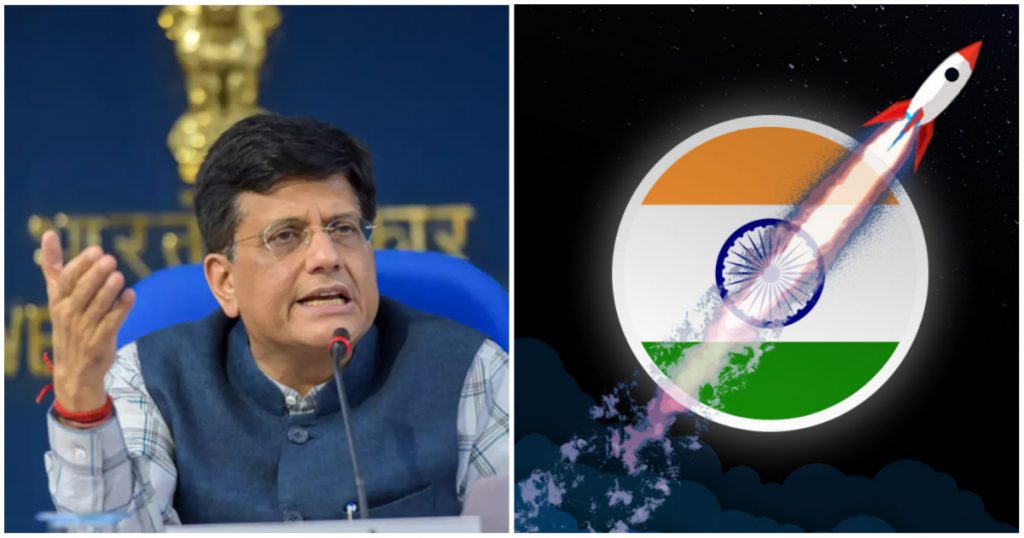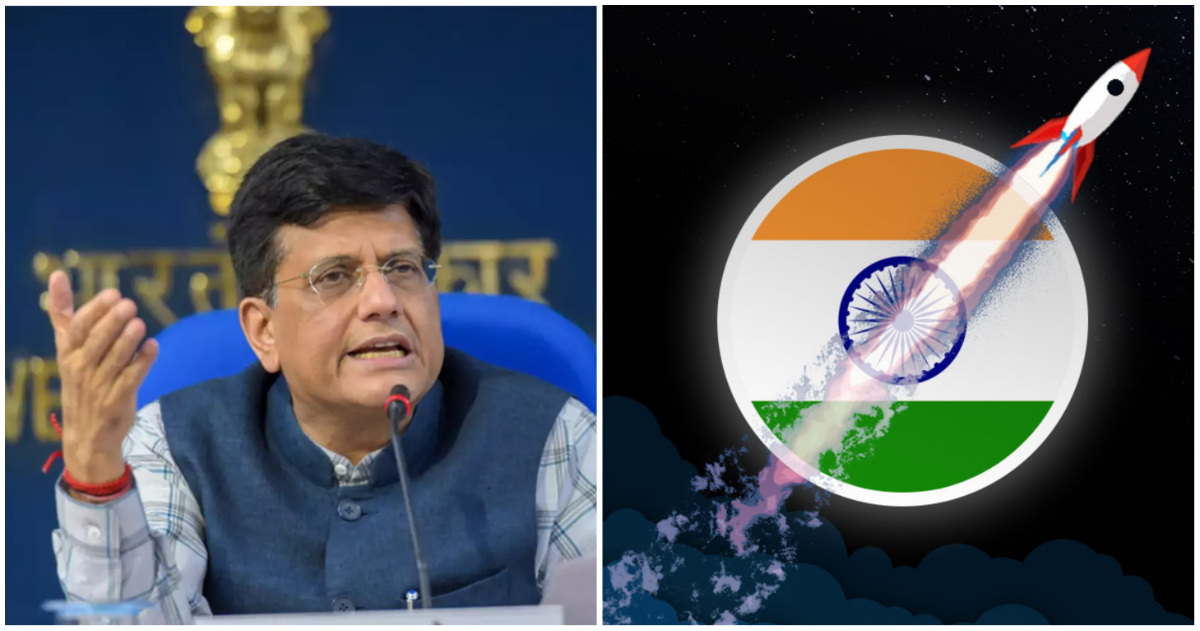It’s common knowledge that India’s startup ecosystem has boomed over the last few years, but it can still be hard to wrap our heads around how rapid the growth has really been.
The number of registered startups in India has grown from 452 in 2016 to 84,012 as on November 30, 2022, Union Minister for Commerce Piyush Goyal told Parliament today. This represented an 18,000% growth over the last 7 years. The Minister also said that Indian startups were doing better than their counterparts around the world. “Startups are prone to failures (with) a very high probability. Though I must say, the success rate of startups in India is relatively higher than the rest of the world,” he said during Question Hour in Parliament.

The Indian government had begun recognizing startups through the Startup India scheme, which had been launched at a glittering ceremony in 2016. PM Modi had presided over the function, and the who’s who of the startup world had been in attendance, including Uber founder Travis Kalanick, Softbank’s Masayoshi Son, and a bevy of Indian unicorn founders. At the event, which had been evocatively titled “We unobstacle”, the Indian government had announced a slew of schemes to help the country’s fledgling startup ecosystem. This included a exemption from the country’s infamous bureaucratic red-tape, including provisions for no labour inspections for three years, a self-certification regime, and a registration straight through a mobile app.
Registered startups also had several benefits, including income tax rebate for three years, exemption from capital gains tax, and an 80% rebate on patent applications. Most crucially, the government also committed funding support of Rs. 10,000 crore from several schemes, including the Fund of Funds for Startups (FFS), Startup India Seed Fund Scheme (SISFS) and Credit Guarantee Scheme for Startups (CGSS) extend support to startups at various stages of their business cycle. The government has thus far funded 88 Alternative Investment Funds (AIFs) with Rs. 7385 crore, which in turn have invested in 720 startups.
The efforts seem to have borne fruit. India had fewer than 10 unicorn startups in 2016, but now boasts of as many as 107 startups with a valuation of $1 billion or more. In the process, the country has become home to the third highest number of startups anywhere in the world, ahead of countries like UK and Germany, and only behind US and China. Indian startups now employ lakhs of people, and create world-class products and services. Startups which have indirectly received funds from the government include unicorns such as Unacademy, Uniphore, Curefit and Zetwerk, and others which are valued in the hundreds of millions, including Dunzo, FreshToHome, Vogo and others.
And India’s startup story might just be getting started. India has plenty of technical talent, the second largest population, and is the fastest-growing major economy in the world. This means that it has no shortage of global VC funds that are looking to back local startups. And if India’s startup ecosystem can continue growing at the pace at which it has over the last decade, it can not only provide millions of jobs for Indians, but also build products and services for billions around the world.
